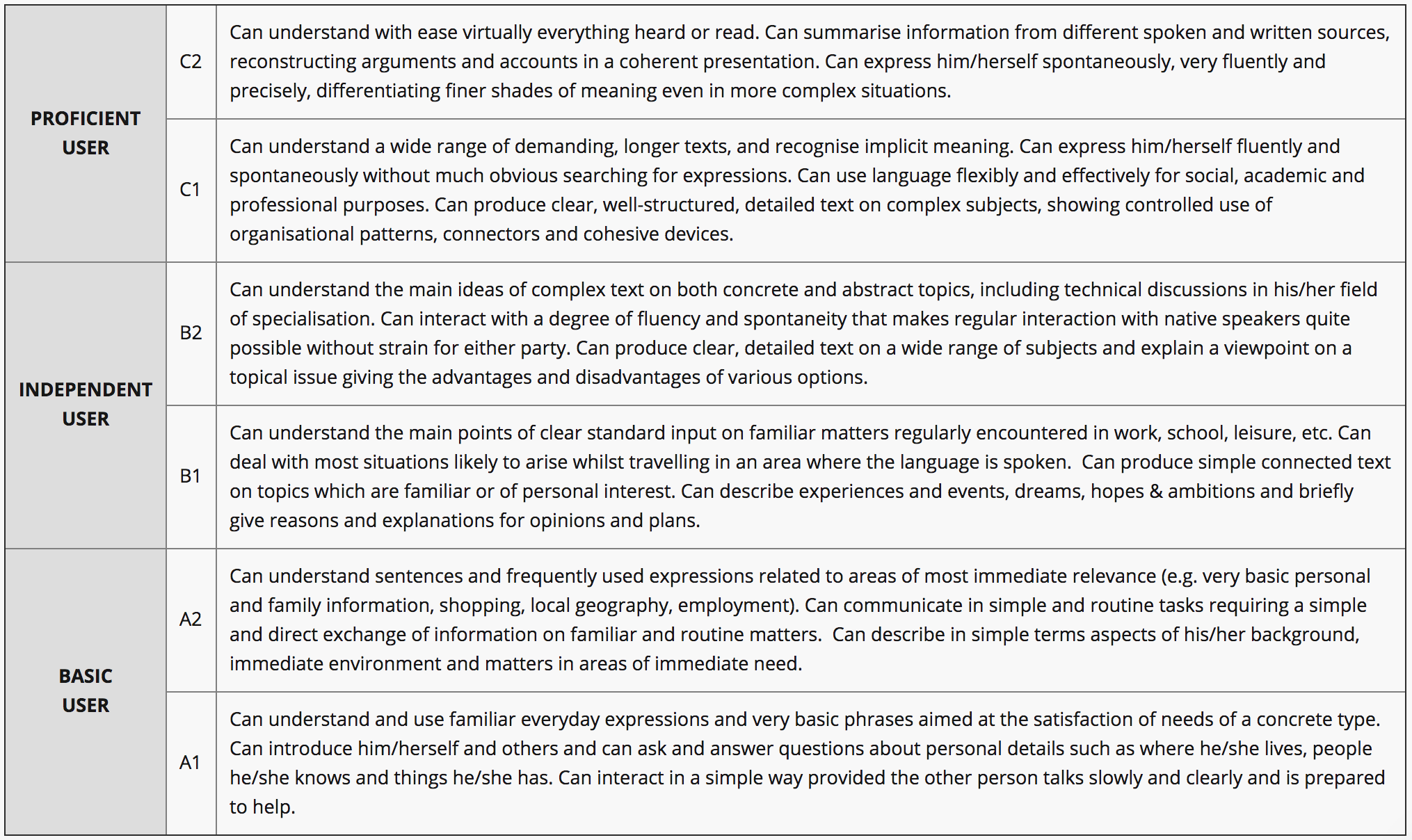
No matter what your age or skill level, learning to speak French has immense personal and professional benefits. French is the sixth most widely spoken language in the world, and there are over 220 million French speakers across the globe, according to the Ministry of Europe and Foreign Affairs. Considering the many cultural contributions that France has given us (croissants and champagne, anyone?) it’s no surprise why many people want to learn French. In fact, learning to speak French is the most meaningful way you can steep yourself in one of the most fascinating cultures on earth. But how long does it take to learn French – and what are some ways to speed up the process?
How Long Does it Take to Learn French?
When you’re thinking about learning a new language like French, its normal to have many questions and concerns. If you’re wondering how long it will take you to learn French, that’s totally normal. Adopting the French language is certainly an exciting journey, but its fruitful rewards can’t be achieved without time and effort. If you’re serious about learning French and you’d like to consider your options, here’s what you should know: everyone’s experience is different. How quickly you learn French is dependent upon many factors, including how much time you commit each day, and what types of methods you’re using to learn.
How Long Does it Take to Learn French Fluently?
Many people also wonder how long it’ll take them to learn French at a fluent level. The time it takes to learn french fluently depends on how you define fluent. For example, you may hope to gain enough French skills that you can ask basic questions, and find your way around when traveling. Or, you might hope for a more advanced skill level that allows you to engage in meaningful conversations. Whatever your goals may be, its important to note that there are different levels of fluency.
French Language Learning: Goal Setting
To define your fluency goals and develop realistic expectations, its a good idea to reference the Common European Framework of References for Languages, or CEFR. This popular language framework was “developed to provide a common basis for the explicit description of objectives, content, and methods in second/foreign language education.”
The CEFR is a reliable source for evaluating French language proficiency because it is the most commonly used standard across Europe. Its also a great way to set realistic goals and determine an achievable plan for reaching them. For example, if your goal is to learn to speak French at an advanced level in just one month by studying only two hours per week, that’s not a realistic expectation. However, if you plan to achieve an advanced level by studying and practicing french for multiple hours a day, over the course of three months, that might actually be doable.
To learn more about fluency levels and determine your goals, consider how the Alliance Française of Washington, D.C. breaks down CEFR’s standards.
Beginner (A1)
Beginner French language learners can understand and use basic phrases and familiar expressions. They’re able to interact with French speakers in a simple way and have their needs met, as long as the speaker articulates slowly.
Advanced Beginner (A2)
The advanced beginner can also understand basic phrases and expressions, as well as those related to everyday life. They can engage in the direct exchange of communication with others, and provide simple details about their surroundings and daily schedule.
Intermediate (B1)
As an intermediate French speaker, you’ll be able to complete sentences based on experiences and preferences. You’ll also be able to travel without difficulty, managing simple navigation and communication when necessary. Plus, you’ll be able to understand opinions and inputs on regular daily matters, like those which involve work, school and leisure.
Advanced (B2)
Advanced speakers of French can understand abstract and concrete topics, including those in complex and specialized fields. These speakers can interact with fluent and native speakers in an easy, spontaneous way that doesn’t require extra consideration. At this level, its easy to articulate clear opinions, advantages and disadvantages regarding a topic or situation of any kind.
Expert (C1/C2)
As suggested by the name of this level, the expert French speaker has essentially mastered the language. They can express themselves in a wide variety of nuanced ways, and they can read and consider detailed texts. They also can use language in a more flexible way, depending on social or professional contexts. Above all, expert language learners can understand almost everything they see and hear.

Factors That Affect French Language Learning
Now that you’ve considered the different levels of french proficiency – and perhaps which one you’d like to work towards – let’s talk about how to learn french faster. Even if you’re a complete beginner, there are certain circumstances which may make it even easier to acquire French language skills.
Basic Knowledge of Romance Languages
First and foremost, having knowledge of another romance language can inform your French speaking skills. Romance languages like French, Spanish, Italian and Portuguese are all derived from latin, so they have similar grammatical features and vocabulary.
How Long Does it Take to Learn French if You Know Spanish?
If you already know how to speak Spanish, you’re in luck when it comes to learning French. In addition to sharing similar grammatical structures and vocabulary words, French and Spanish have a number of cognates. Cognates are words from two different languages that look and sound similar. When you encounter cognates in French, you’ll have a faster and more robust understanding of what these words mean.
How Long does it Take to Learn French if you Speak English?
Similarly to Spanish, knowing English can help you pick up French faster. With French and English, its also a good idea to be aware of false cognates. A false cognate is when a French word sounds just like an English word, but doesn’t share the same meaning. While false cognates can be confusing at first, they can actually help you differentiate between the two languages more efficiently.
How Long Does it Take to Learn French From Scratch?
If you don’t have past experience with a romance langauge, fear not. You can still learn French quickly and efficiently, as long as you put in the effort. Learning a romance language for the first time will require some baseline language review, like past tense and subject verb agreement. If you commit to this language work early and often, however, you can quickly ramp up to the level of someone who already knows a romance language.

Ways to Learn French Faster
If you’re ready to get a head start on learning French, there are a number of routes you can take. From online games and activities to full-fledged textbooks and courses, choosing the right learning techniques all depends on your goals. If you’re focused on learning French quickly, however, you’ll want to find a method that mixes speed and efficiency with accuracy and enjoyment.
Learning French Online
Taking an online course to learn French is a formidable option, especially if you’re someone who craves structure and regimen. Researching different formats and reading French language course reviews can help you choose the right program for you. One important consideration is that online courses can be costly and time consuming, which may not be ideal if you’re trying to learn French fast and on a budget.
Games for Learning French
Language learning games are a great way to stay entertained and interested as you learn. For example, cloze tests are an activity where a participant is given a sentence or passage in a foreign language, with certain words removed. Then, the learner has to determine which words are missing. Cloze tests can be either simple or complex depending on skill level, and they can help with grammar, language comprehension and cultural knowledge. Clozemaster turns cloze tests into a game where you can score points and track your progress, as well as learn thousands of French words in context.
If you’re a complete beginner, Duolingo is a great way to start learning French. You might also want to check out Memrise to help learn basic phrases and vocab, and Lingvist for some fun extra practice.
Practicing French Conversation
Practicing French Writing Skills with The Great Translation Game
Playing The Great Translation Game is a unique way to practice writing in French. You simply select or upload any French text that you like, read through it in French with automatically provided English translations, and then work through it again translating from the English back into French.
The Great Translation Game gives you immediate feedback on your translations, which helps you recognize and correct common errors in your French writing. And since you’re using native-level content of your own choice, you can be sure that the feedback is always spot on. This kind of writing practice with material you are genuinely interested is a cornerstone of a good French learning strategy.
How Long Does it Take to get a French Accent?
Developing an authentic French accent can be a difficult endeavor, especially when you’re a native English speaker. However, there are a few ways you can enhance your speaking abilities and develop a more authentic accent. One of the best ways to do so is by indulging in French movies and music, which can enhance your French listening skills and make challenging accents and dialects more familiar.
How Long Do You Have to Live in France to Become Fluent?
If you’re lucky enough to live in France or another French-speaking country, French fluency may be easier to achieve in a shorter amount of time. Some people say that beginners can become fluent in one year, but that of course depends on your experiences abroad. If you’re driven, excited and hungry to master French, you’ll be fluent before you know it.


Pingback: How to Learn French on Your Own [In Less Than a Year]
Hi you have a wonderful Posting site It was very easy to post fantastic
This is an excellent blog. Many people are eager to grasp a new language and French seems like the easiest and most beneficial foreign language to learn. These queries that often pop up in the minds of people leave them worried. Thanks for answering all these queries through this wonderful blog.
Nice
Been studying and practicing French for 7 months and can’t really speak it at all. I also speak Spanish and no it doesn’t make it easier. I understand a bit more when reading of listening but it’s still confusing to make out. My conclusion is that LIVING in France is the best way and only people with an ease to pick up languages can do so living outside the country (france)